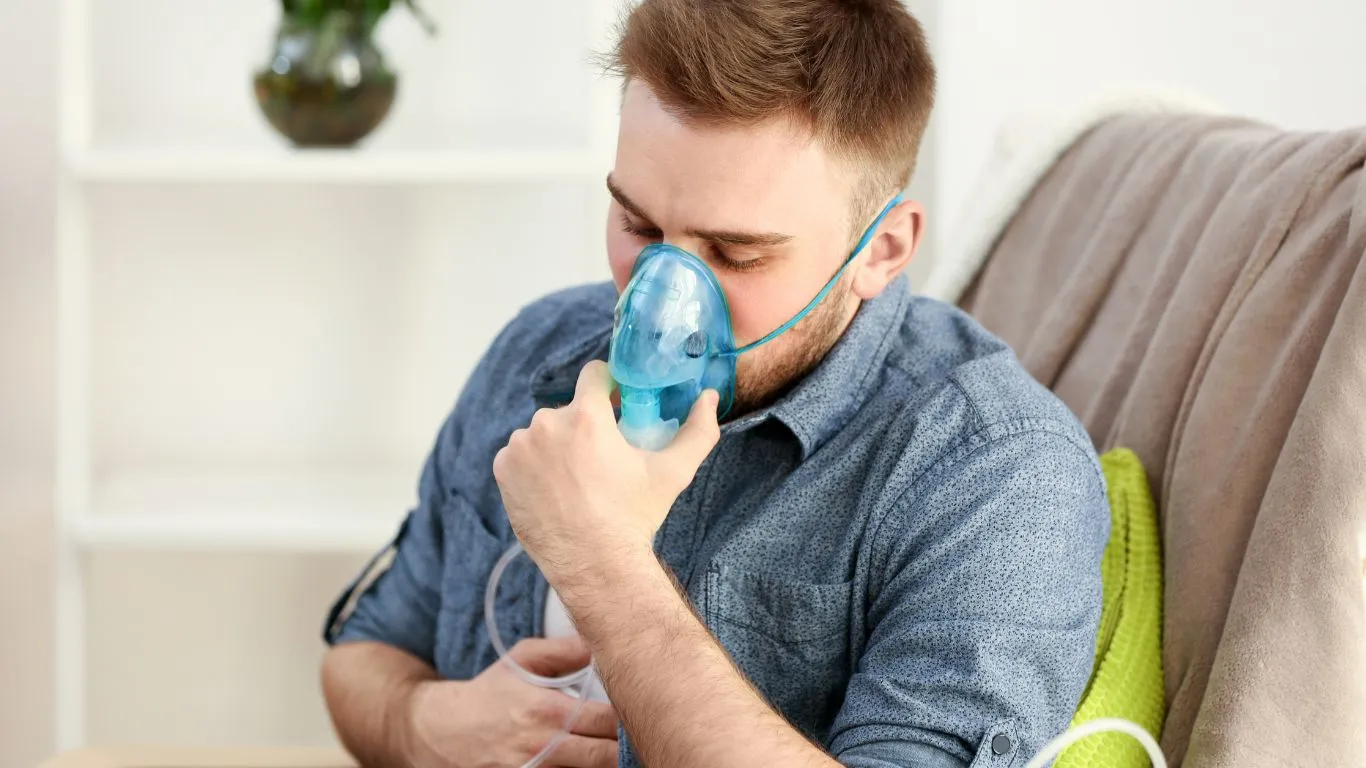Can Asthma Be Mistaken for Anxiety Attacks? Discover the Truth!
Living with asthma is a journey filled with ups and downs. As someone who’s spent years helping others manage their respiratory health, I’ve come across some interesting questions and concerns from my patients. One of the most common questions I get is: “Can asthma be mistaken for anxiety attacks?” This is a crucial question because both asthma and anxiety can cause similar symptoms, like shortness of breath, chest tightness, and a feeling of being unable to catch your breath. But is it possible that someone could confuse one for the other? Let’s dive into this topic and explore it from both a medical and personal perspective.
Can Asthma be Mistaken for Anxiety Attacks?
Many people who struggle with asthma know the terrifying feeling of not being able to breathe. It can come on suddenly, making your chest feel tight, your breath shallow, and your body fight to get air. For someone experiencing an anxiety attack, these same sensations can also occur. Both asthma and anxiety attacks can cause a similar feeling of breathlessness, which is why they sometimes get mixed up. In fact, I’ve seen this happen a lot in my practice, and it’s not uncommon for individuals to find themselves in a whirlwind of confusion, thinking they’re having a panic attack when it’s actually asthma flaring up.

But why does this happen? Well, the body responds to both asthma and anxiety in ways that can be quite similar. Both conditions involve the airways and the way the body perceives shortness of breath. Asthma, a chronic respiratory condition, occurs when the airways become inflamed and constricted, making it difficult to breathe. On the other hand, anxiety attacks are a mental health response to stress or fear, which can also cause the muscles around the chest and lungs to tense up, resulting in a sensation of tightness and difficulty breathing.
The Overlap: Symptoms of Asthma vs Anxiety
Let’s take a closer look at the symptoms of both asthma and anxiety attacks to understand why they can be mistaken for one another. If you’ve experienced either or both of these conditions, you probably recognize some of the signs:
- Shortness of breath: Both asthma and anxiety attacks can cause a feeling of breathlessness. In asthma, this is due to the narrowing of the airways, while anxiety attacks cause rapid, shallow breathing as the body responds to stress.
- Chest tightness: A feeling of pressure or tightness in the chest is common in both asthma and anxiety. In asthma, this occurs when the airways constrict, while in anxiety, it’s often due to muscle tension in the chest area.
- Increased heart rate: It’s not uncommon for your heart to race during both asthma flare-ups and anxiety attacks. This happens because the body is in a state of distress and is trying to cope with the situation.
- Hyperventilation: In anxiety attacks, hyperventilation often happens, which can make someone feel like they can’t breathe, similar to an asthma episode where the airways are blocked.
As you can see, there’s a lot of overlap in the symptoms. But how do you tell the difference? This is where it gets tricky. For some individuals, the confusion might not end until they undergo the appropriate tests and diagnosis from a healthcare provider.
What Sets Asthma Apart from Anxiety Attacks?
While the symptoms are quite similar, there are some key differences that set asthma apart from anxiety attacks. One of the most important things to consider is the trigger. Asthma tends to be triggered by physical factors such as allergens, weather changes, exercise, or exposure to irritants like smoke or dust. For someone with asthma, these triggers can set off a flare-up, leading to symptoms like wheezing, coughing, and difficulty breathing.

On the other hand, anxiety attacks are typically triggered by psychological stress, worry, or fear. The feelings of panic or dread that accompany an anxiety attack can cause the body to respond with symptoms like rapid breathing, racing heart, and a sense of impending doom. However, there’s no physical “blockage” of the airways, as there is in asthma. For someone who experiences both asthma and anxiety, distinguishing between the two can be especially difficult, especially when both can feel equally overwhelming.
Can Anxiety Cause Asthma-like Symptoms?
Another important question I often get is whether anxiety can cause asthma-like symptoms. In short, yes, it can. Anxiety can trigger hyperventilation, which might make you feel like you’re not getting enough air, even though your lungs are functioning normally. This sensation can be scary, and it can easily mimic an asthma attack, especially for those who have asthma. However, this doesn’t mean that anxiety is the same as asthma. If you’re experiencing frequent asthma-like symptoms, it’s always important to see a healthcare professional to rule out other potential causes, including asthma.

Why Diagnosis is Key
As someone who has been helping people manage asthma for years, I cannot stress enough how important it is to get the right diagnosis. If you’re confused about whether your symptoms are asthma-related or linked to anxiety, don’t try to self-diagnose. It’s crucial to visit a healthcare provider who can assess your symptoms, run the necessary tests, and provide an accurate diagnosis. Asthma requires specific treatment options that can help you manage flare-ups and reduce symptoms, while anxiety typically requires a different approach, such as therapy or medications to manage stress and mental health.
How to Distinguish Between Asthma and Anxiety Attacks
So, you’ve experienced those moments where you’re struggling to breathe, and it feels like you just can’t catch your breath. It’s easy to think that you’re having an anxiety attack, but what if it’s actually an asthma flare-up? This is something I’ve come across many times in my career as an asthma expert. I’ve worked with patients who, at first, thought they were having panic attacks, only to discover that they had been experiencing asthma symptoms all along. To truly understand whether it’s asthma or anxiety, it’s important to focus on a few key differences in how both conditions play out.

Physical vs. Emotional Triggers
One of the major differences between asthma and anxiety attacks is what triggers them. When it comes to asthma, the causes are often physical: allergens, cold air, exercise, or irritants like smoke. These triggers affect the lungs, causing inflammation and narrowing of the airways. Anxiety, on the other hand, is often triggered by emotional or psychological factors. Stress, fear, or panic may set off an anxiety attack, which leads to shortness of breath and chest tightness, but there’s no physical airway constriction like there is in asthma.
For example, I once had a patient who frequently thought they were having panic attacks during stressful situations. After further examination, we discovered that it was asthma, triggered by the cold weather they were exposed to on their daily jogs. Once they started using their inhaler before exercise, the “panic attacks” stopped entirely. It’s amazing how something as simple as understanding your triggers can make such a difference.
Wheezing and Coughing: The Key Indicators
Another telltale sign that can help you differentiate between asthma and anxiety is the presence of wheezing and coughing. Wheezing, a high-pitched sound when you breathe out, is a hallmark of asthma. It’s caused by the narrowing of your airways, and it can be quite noticeable if you listen carefully. Additionally, asthma often causes persistent coughing, especially at night or early in the morning, which is something you typically don’t experience with anxiety attacks.

For those dealing with anxiety attacks, coughing and wheezing are not typical. You may feel a sensation of tightness in your chest or even start hyperventilating, but these symptoms are often emotional rather than physical. I’ve seen many people with anxiety misinterpret a tight chest as asthma, only to discover that their symptoms improve with relaxation techniques rather than medication for asthma. This is why understanding your body’s response is crucial to managing these conditions effectively.
When to Seek Help: Getting the Right Diagnosis
It’s really important to recognize when you need to seek professional help, especially if you’re unsure whether your symptoms are related to asthma or anxiety. In my experience, too many people try to handle their symptoms alone, which can lead to unnecessary suffering or mismanagement of their condition. Getting an accurate diagnosis from a healthcare professional is the best way to ensure that you’re getting the appropriate treatment, whether it’s for asthma, anxiety, or both.
If you notice a pattern to your symptoms, such as shortness of breath that gets worse with physical activity or exposure to allergens, it could be a sign of asthma. If your symptoms seem to be triggered by stress or specific emotional situations, anxiety may be the cause. However, there is no harm in getting checked out by your doctor to rule out either condition. And remember, it’s totally okay to have both asthma and anxiety. The key is knowing how to manage both.
The Role of Breathing Tests and Diagnosis
One of the most effective ways to determine if asthma is the culprit is through a breathing test, known as spirometry. This test measures how much air you can breathe in and out, as well as how quickly you can exhale. If you have asthma, you will often show decreased lung function during a flare-up.
During my time working with patients, I’ve seen how spirometry has helped pinpoint asthma, even in cases where anxiety seemed to be the clear culprit. By using this test, we can clearly distinguish between asthma-related breathing difficulties and other conditions like anxiety. It’s a simple test, but it can provide invaluable insight into your respiratory health.
How to Manage Both Asthma and Anxiety
If you find yourself dealing with both asthma and anxiety, don’t worry—you’re not alone. Many people experience both conditions simultaneously, and it’s important to treat both appropriately. Managing asthma typically involves using medications like inhalers to keep the airways open and reduce inflammation. Meanwhile, managing anxiety often involves therapy, medication, or lifestyle changes to help manage stress.

In my personal experience, combining asthma treatments with stress management techniques can make a world of difference. Mindfulness, yoga, and deep breathing exercises can be incredibly beneficial for both conditions. These techniques not only help with anxiety but can also improve lung function and breathing control during asthma attacks. One of my patients found that practicing deep breathing before bed helped reduce the frequency of their asthma attacks and kept anxiety at bay. It’s all about finding the right balance and treatment plan that works for you.
Working With Your Healthcare Provider
It’s essential to have a healthcare provider who understands both asthma and anxiety. They can help you develop a comprehensive treatment plan that addresses both physical and emotional symptoms. Communication with your doctor is key—don’t hesitate to share your concerns, symptoms, and any changes you notice. Your doctor may even recommend seeing a specialist in respiratory health or mental health to ensure that both your asthma and anxiety are being properly managed.
Living with Both Asthma and Anxiety: Tips for Effective Management
If you’re managing both asthma and anxiety, you’re juggling two conditions that can sometimes feel overwhelming. But rest assured, with the right strategies in place, you can handle both. In my experience working with patients who face these dual challenges, I’ve seen firsthand how combining the right treatments can make a huge difference in quality of life. It’s all about understanding the best practices to manage both conditions and taking control of your health. Let’s dive into some helpful strategies that can make living with both asthma and anxiety a bit easier.

Breathing Exercises: Your Secret Weapon
When it comes to managing asthma and anxiety together, breathing exercises are a game-changer. You might think that breathing exercises are only for anxiety, but the truth is, they can also be incredibly helpful for asthma. Deep breathing, diaphragmatic breathing, and other forms of controlled breathing can help relax your body, reduce anxiety, and improve your lung function. I’ve worked with countless patients who were amazed by how much breathing exercises helped them manage both conditions.
One of my patients, a middle-aged woman with both asthma and anxiety, was struggling to control her breathing during her asthma attacks. After we introduced a routine of deep breathing exercises, she noticed a significant improvement in how she managed both. The deep, slow breaths calmed her nervous system, reduced the feeling of panic, and allowed her to better manage her asthma symptoms. It’s an excellent tool that’s easy to incorporate into your daily routine—whether it’s during an asthma attack or as a proactive technique to prevent one.
Managing Stress: How Mental Health Impacts Asthma
It’s important to acknowledge that stress and anxiety can trigger asthma symptoms. I’ve seen this more times than I can count. When you’re anxious or stressed, your body reacts by tightening up—especially in the chest area. This tension can make it feel like you can’t breathe, even if your airways aren’t physically obstructed. That’s why it’s essential to focus on stress management if you’re managing asthma and anxiety together. Your mental health directly impacts your physical health, and reducing stress can help keep both conditions in check.
Some great stress management techniques I recommend to my patients include mindfulness meditation, progressive muscle relaxation, and yoga. These practices not only help with anxiety but also with improving lung function. In fact, research has shown that mindfulness meditation can help reduce the frequency of asthma flare-ups by promoting relaxation and lowering stress levels. Another simple yet effective tool is journaling. Writing down your thoughts and feelings can help you process anxiety, manage stress, and reduce the physical tension that comes with both asthma and anxiety.
The Importance of Regular Check-Ups and Open Communication
Managing asthma and anxiety isn’t something you should do alone. Regular check-ups with your healthcare provider are crucial in keeping both conditions under control. One thing I always tell my patients is that communication is key. The more open you are with your doctor about your symptoms, concerns, and how you’re feeling, the better they can tailor a treatment plan that works for you. Whether you’re adjusting asthma medications or trying out new therapies for anxiety, staying on top of your health is essential for managing both conditions effectively.
Personalized Treatment Plans: A Team Effort
Everyone’s experience with asthma and anxiety is unique, which is why it’s so important to have a personalized treatment plan. Some people may only need basic asthma management, while others might need more intensive care for both asthma and anxiety. In my practice, I’ve worked with many patients to find a balance between physical and mental health care. Some individuals might require medications for asthma like inhalers or steroid treatments, while others might need therapy or anti-anxiety medications. The goal is to address both issues, not just one, and develop a plan that aligns with your lifestyle and needs.

It’s also helpful to collaborate with specialists. If anxiety is a significant issue for you, you may benefit from seeing a therapist or counselor. Cognitive-behavioral therapy (CBT), for example, is often recommended for people with anxiety disorders and can be an excellent addition to your asthma management plan. Your doctor can work with you to ensure you’re addressing all aspects of your health. You’re not just managing asthma or anxiety on their own—you’re looking at your overall health, which is a holistic approach that can lead to long-term success.
Support Networks: You Don’t Have to Do It Alone
Dealing with asthma and anxiety can feel isolating at times, but remember, you don’t have to do it alone. Reaching out for support—whether from friends, family, or support groups—can make a world of difference. Many people I’ve worked with have found comfort and strength in connecting with others who understand what they’re going through. Support groups, both online and in person, can offer guidance, encouragement, and helpful advice from people who’ve been there before. They can also provide emotional support when you’re feeling overwhelmed, and sometimes that’s just what you need to keep pushing forward.
If you’re not sure where to find support groups, ask your doctor or therapist for recommendations. They might know of local or virtual groups that focus on asthma management or anxiety. Sharing your experiences with others who truly understand can create a sense of community and help you feel empowered as you navigate managing both conditions.
References
- Health.com – Your trusted resource for asthma and anxiety management tips
- Mayo Clinic – Comprehensive articles on asthma and mental health
- WebMD – Information on both asthma and anxiety conditions
Disclaimer
The information provided in this article is for informational purposes only and should not be considered medical advice. Always consult with a healthcare provider for diagnosis and treatment of medical conditions. If you are experiencing a medical emergency or severe symptoms, please seek immediate medical attention.

Bianca Nala is a compassionate Nurse Practitioner with a strong background in primary and respiratory care. As a health writer for Healthusias.com, she combines her clinical expertise with a talent for clear, relatable storytelling to help readers better understand their health. Bianca focuses on topics like asthma, COPD, chronic cough, and overall lung health, aiming to simplify complex medical topics without losing accuracy. Whether she’s treating patients or writing articles, Bianca is driven by a single goal: making quality healthcare knowledge accessible to everyone.







